READY TO GET STARTED?
REQUEST A FREE ESTIMATE
Fill out the form below or call (888) 466-7849 for a free, no-obligation estimate.
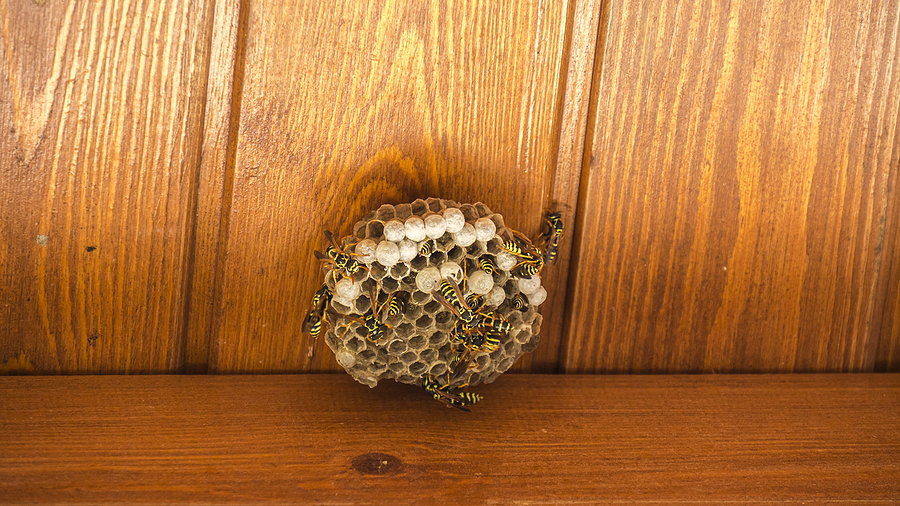
Stinging pests are most active during the summer months, so while we enjoy the summer fun of lounging by the pool and backyard BBQs, we should all be on the lookout for these pests as they can pose a risk to you and your family. Check out these common stinging pests and the best way to avoid them!
With a slim body shape, six long legs, and two wings, wasps are busy at work scavenging for food during the summer months. Wasps will typically build their nests in branches, porch ceilings, eaves, and attic rafters. These pests are highly attracted to picnics and backyard barbeques, increasing your chance of being stung. When threatened, wasps will sting multiple times and eventually call on reinforcements from other wasps by emitting pheromones.
Hornets’ nests are often built in hollow trees and the walls of houses and attics, although they typically prefer a forested environment. These pests are larger and can range from 3/4 to 1 3/8” long with brown and yellow abdominal stripes on their body. Hornets are attracted to light and will fly into your windows at night if they see a light on. They are relatively non-aggressive near the nest, but if threatened, there is a potential for a stinging hazard.
Yellowjackets are social insects and can be found anywhere humans are found. Yellowjackets feed on sweets and proteins; therefore, these pests commonly invade outdoor events. Yellowjackets measure 3/8″ to 5/8” long and have a non-fuzzy black and yellow striped body. Yellowjacket nests can either be built in very high places or built in the ground. Examples include in shrubs, garages, timber, logs, and more. If threatened, yellowjackets will sting multiple times, causing extreme pain and possible allergic reactions.
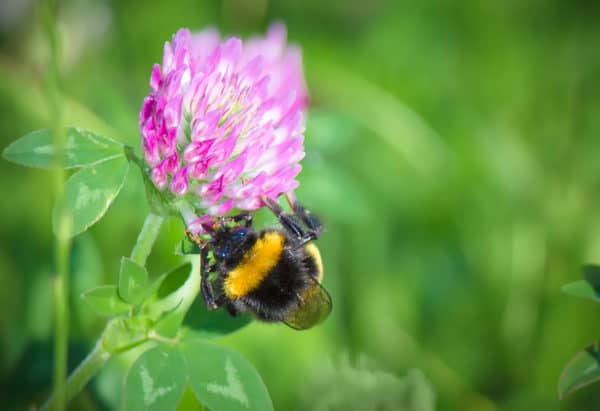
A household pest is any undesired animal that has a history of living, invading, causing damage to, eating food from, acting as a disease vector for, or causing any other harm to a human habitat. While most are considered a nuisance, household pests become dangerous when they pose a risk to health, property, or lifestyle. Household pests aren’t just limited to insects; they also include arachnids, rodents, and wildlife.
While household pests can be found year-round, some are more common in the summer months. Here are 8 of the most common summer household pests and how you can prevent them.
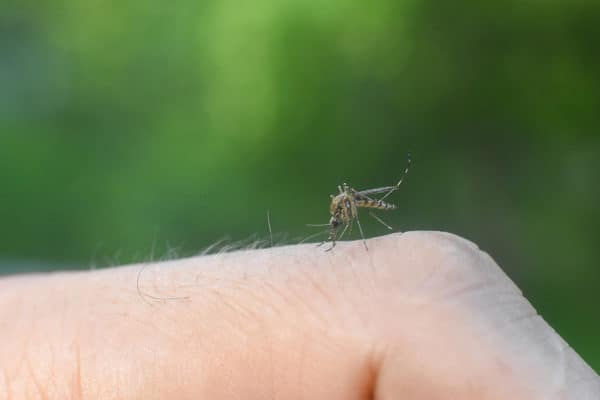
Mosquito season peaks in the summer months. The warm weather and humid environments accelerate their life cycle so they are able to reproduce in large numbers during this time. You are most likely to see mosquitoes when you have standing water on your property. Mosquitoes lay eggs in standing water and the hot, humid climate in summer is ideal for both breeding and to find food sources. Mosquitoes are dangerous to humans as they carry pathogens that can cause serious diseases like Zika and West Nile virus.
Mosquitoes can be prevented by:
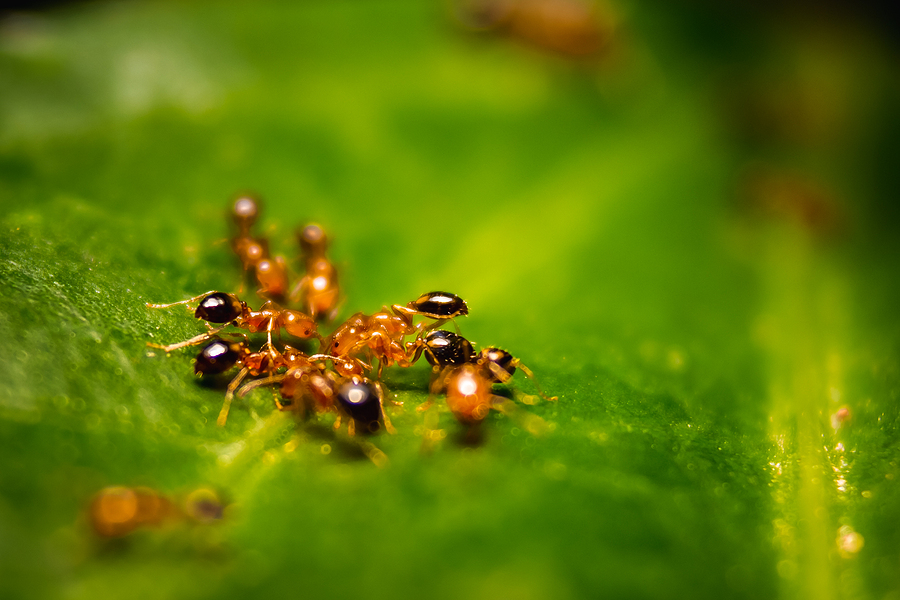
Ants hibernate in the winter and come out in full force over the summer. They have to forage in the summer months to feed their growing colonies and to build up their reserves for fall. Ants are usually seen indoors in the summer because they are searching for food and water as these can become scarce for them.
Ants can be prevented by:
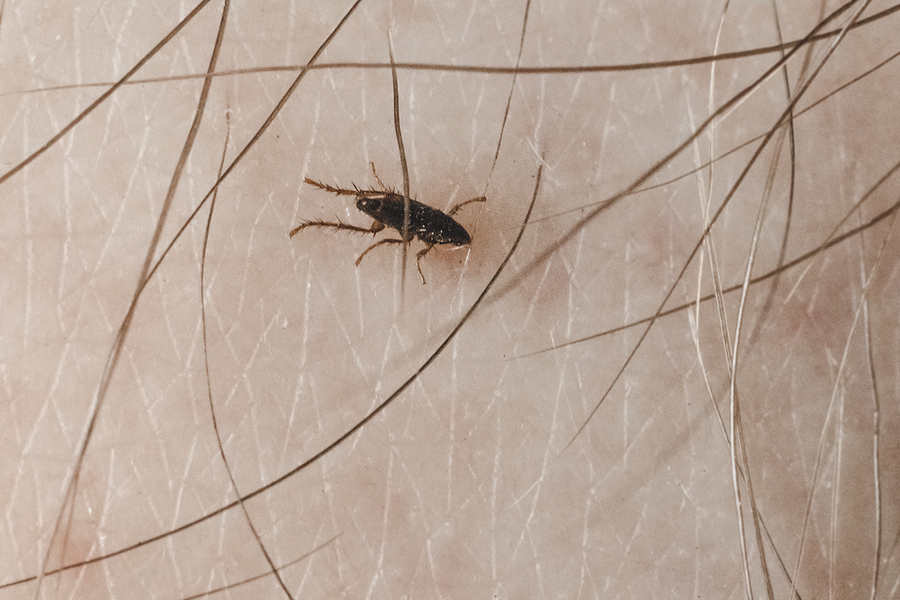
Fleas are prevalent in the summer months, although they can be found on pets year-round. Pets will indicate the presence of fleas by scratching and biting when they come in from outdoors.
Fleas can be prevented by:
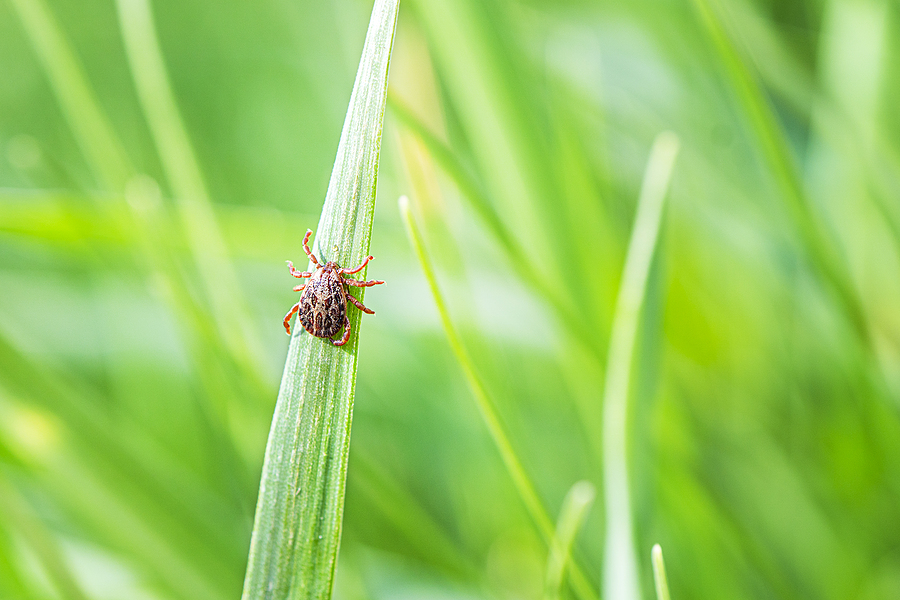
Ticks are problematic to humans and pets because they spread diseases like Lyme disease and Rocky Mountain spotted fever. Tick bites increase in the summer because people and animals are spending more time outside. The US is also seeing an increase in ticks because of the combination of mild winters and an increased population of deer and rodents which are known to carry ticks.
Ticks can be prevented by:
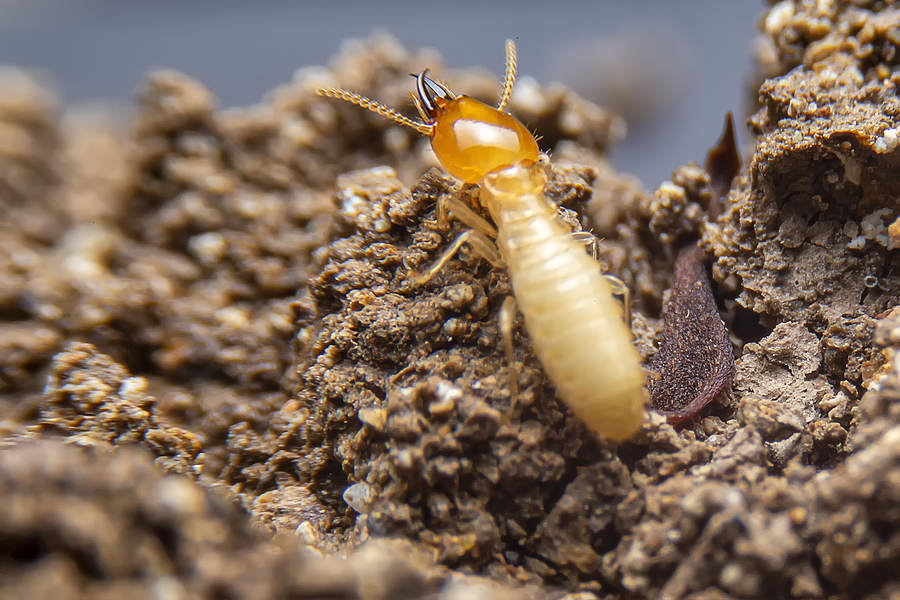
Termite swarming season is in the spring but these newly established colonies grow exponentially in the summer. Termites can go long periods of time undetected, causing significant damage to your home. It is important to keep an eye out for signs of termites so you can catch them early.
Termites can be prevented by:
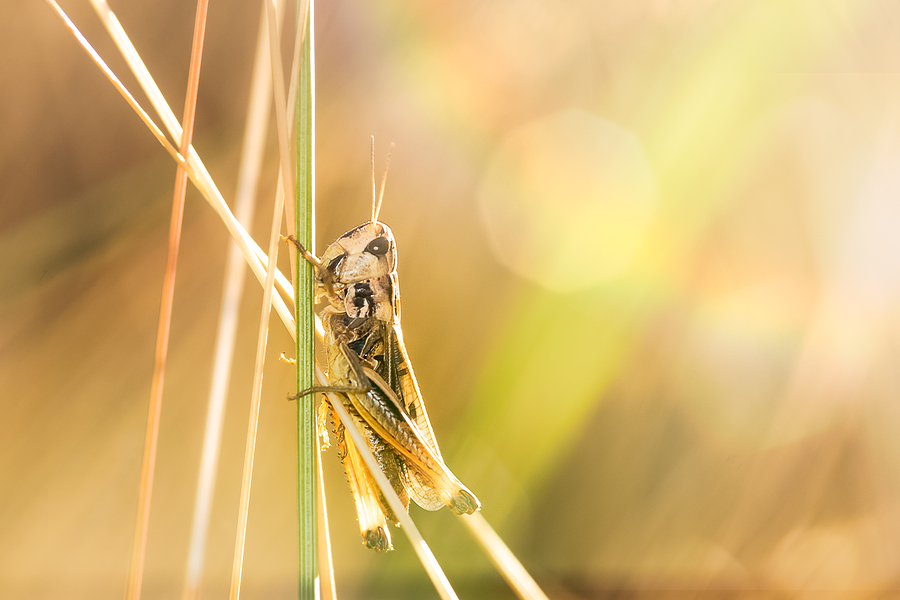
While most people view grasshoppers as just a nuisance pest, they can be devastating to gardeners and farmers. Grasshoppers can devour an entire field of crops in just a few days. Grasshoppers surge in large numbers in the summer months and are most prevalent in dry, hot summers. Grasshoppers can also cause damage to non-farmers as these are one of the only pests that can chew through screens.
Grasshoppers can be prevented by:
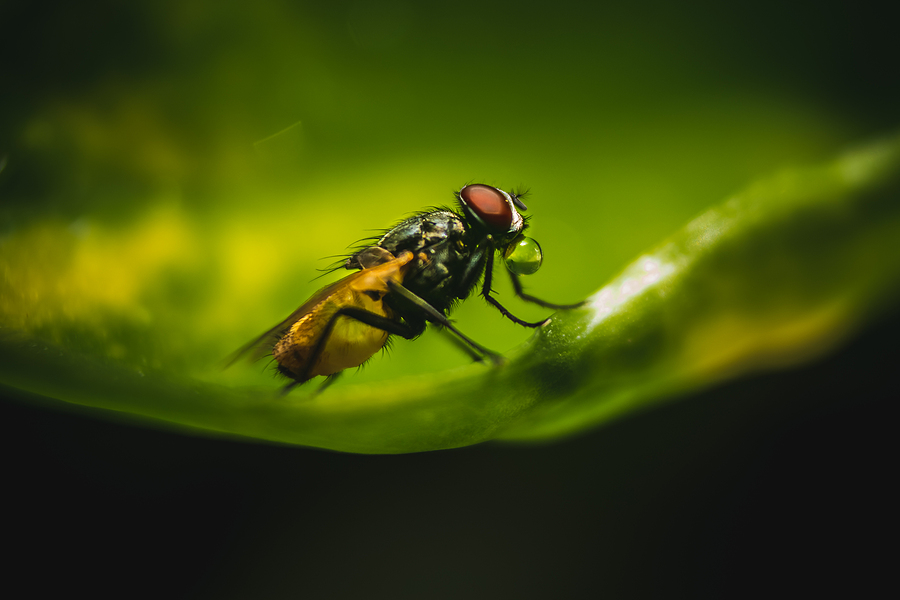
Flies invade your home in the summer months to escape the heat. They only reproduce during the hotter months and reproduce even more prolifically when they get indoors. Flies will stick around well into the fall months.
Flies can be prevented by:
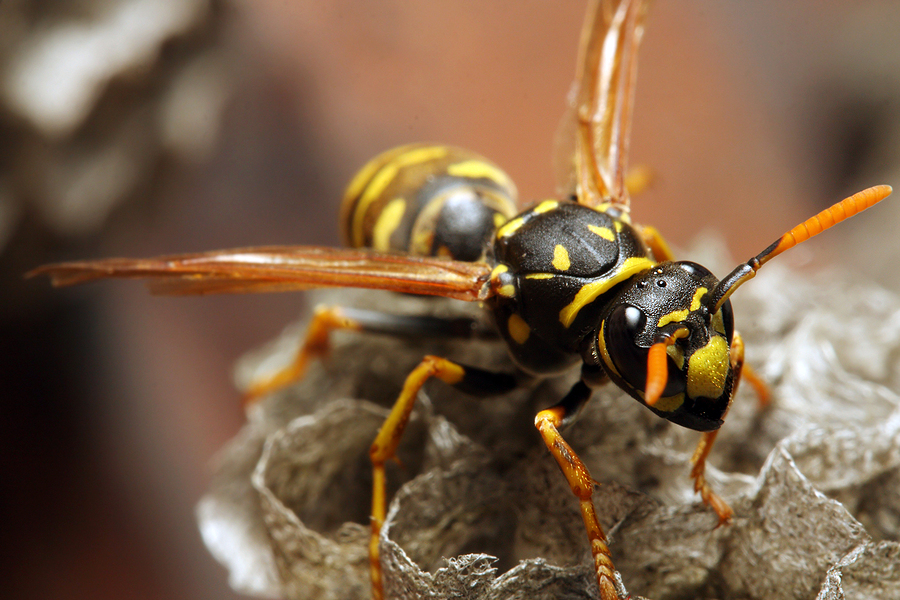
Stinging insects mate in the spring and their populations grow during the summer months. Hornets and yellow jackets are especially common in the summer because they have to establish new nests each year. These are usually found under decking or under piles of leaves. These stinging insects are potentially dangerous for people with allergies. Yellow jackets and bees can also get into the walls of homes, causing significant damage.
Stinging insects can be prevented by:
Don’t let these common summer pests ruin your summer. If you have a problem with any of these pests, contact a professional pest control company who can help eliminate them safely and prevent them going forward.
Termites: How to Stop Their Damage

With the warmer weather ever so present, it’s the perfect time to take up or get back into gardening if it’s been a while. Though, gardens can benefit your entire family, they can also be a major attraction to pests and wildlife. Birds such as crows, pigeons, sparrows, robins, and starlings are a few that are drawn to food sources found around your home. Fortunately, there are some easy DIY prevention tips to help prevent birds from destroying your fruits and vegetables!
If you need a quick and easy way to keep birds away, you can place everyday objects found in your home around or in your garden. Objects such as, CDs, aluminum cans, tin foil, small mirrors, or even metallic wrapping paper can discourage birds from entering unwanted areas. Light reflections discourage birds from returning to these areas. Aluminum foil is one of the easiest and cheapest ways to keep birds away. Birds typically don’t like the feeling of foil under their beaks. Place strips of aluminum foil from trees or high points around your garden.
A fun and decorative approach to keeping birds away is to invest in some garden balls. Garden balls are a natural bird repellent that are round and colorful. They can be placed in or around your garden or hung in trees, fence posts, and stakes. Garden balls are multipurpose, as they are great for decorating your garden but will also confuse birds away from the area.
Another method is to place bird spikes around your home and garden. Bird spikes are long, needle-like rods used to keep birds away from certain areas. Birds find these spikes very uncomfortable and will avoid landing on them. You can also create these spikes by using plastic cans and place them in the dirt or attach them to the wire of windowsills, overhangs, or fences.
If you try these DIY methods but still have issues with birds, you should contact your local pest control company who specializes in wildlife control. They will be able to evaluate and determine the best measures to prevent birds from returning.

Spending time outdoors is a great way to escape the hustle and bustle of everyday life. Whether it’s spending time by the pool, having a picnic, or just lounging in the yard, relaxing outside is a great activity for the whole family. But the last thing you want to have to deal with while spending time in your yard are mosquitoes. Mosquitoes can be a danger to your family and even pets as they survive by sucking blood from animals and humans. They are usually found in areas of high humidity looking for stagnant, standing water to breed. Luckily, there are ways you can prep your yard to prevent mosquitoes.
Remove Unnecessary Items
Since mosquitoes breed in standing water, it is essential to eliminate any items that could hold water. Items such as foundations, toy buckets, outdoor pet bowls, flowerpot sauces, tarps, pool covers, and more should not stay in your yard for a long period of time. It’s also important to remove excess grass, leaves, firewood, and yard clippings as mosquitoes tend to stay in grass and debris around your home.
Clean Your Gutters
Clogged gutters can not only create standing water but will also catch debris and leaves. This provides mosquitoes a perfect breeding location. Make sure that your gutters are clean and clear, especially after a thunderstorm. Consider installing gutter guards to help prevent clogs and clutter.
Fill Hollow Areas
Any low-lying areas like ditches can also collect standing water after rain or watering plants. Make sure to check around your yard that you don’t have these; if you do notice them you can simply fill them in with dirt. Additionally, check for any hollow logs and stumps throughout your yard. They not only can hold standing water but will also provide overwintering mosquitoes a place to hibernate during cold weather.
Maintain the Pool
If you have a well-maintained pool, mosquitoes will most likely avoid it. However, if a pool goes unused for a long period of time, these pests will be attracted to the stagnant water. Make sure to keep the pool maintained or covered if you’re planning to not use it for a while.
By utilizing these tips, you can start to enjoy your yard and worry less about mosquito bites! If you are still having an infestation of mosquitoes, it’s best to contact your local pest company to provide you with the best plan of action to eliminate mosquitoes. Request a Free Estimate now to get started.
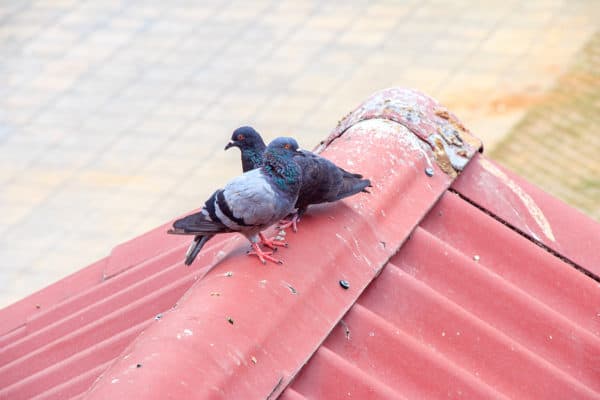
Some birds are beautiful and fun to watch, while others can be downright annoying and destructive. While birds aren’t typically considered a nuisance pest, they can become a problem when their nests obstruct important areas in your house, their droppings carry transmittable diseases, or they get into your attic or chimney.
Understanding what nuisance birds are attracted to is the first step in helping to prevent them. Pest birds such as crows, pigeons, sparrows, robins, and starlings are attracted to food sources they can find around your home (insects, earthworms, corn, seeds, and rotten fruits and vegetables). Woodpeckers are also a common nuisance bird and will drill into your trees in search of carpenter ants, beetles, and other wood-boring insects.
Birds can be attracted to pet food which is often left outside all day for them to feast on. Birds also require water to survive and will use your fountain, water feature, or any other standing water on your property as a birdbath.
While professional bird control is always an option, there are some bird prevention tips you can use at home to help keep birds away. Here are 5 of our favourite DIY bird-repellent methods.
If there isn’t anything in your yard to attract birds, they will be less likely to hang around.
Most birds require freshwater to survive. Substitute saltwater for freshwater in your fountains and water features so birds won’t be able to drink from them. If you feed your pets outdoors, remove or cover their food and water dishes as soon as they’re done with them. Make sure pet food is kept in airtight containers.
Birds also like to take cover in grass and other landscaping, especially in windy or stormy conditions.
Make sure grass is kept mowed, and hedges and trees are kept trimmed to help reduce cover. If you see a bird actively building a nest, use a long stick to dismantle it. Once you do this a few times, the bird will move on to a new nesting site.
If the nest is already built or occupied by the bird, don’t attempt bird nest removal yourself. There are laws in each state regulating the removal of bird nests. Contact a professional wildlife exclusion company to help properly remove or relocate the bird’s nest in question.
One of the easiest and cheapest natural bird repellents is aluminum foil. There are several different ways you can use aluminum foil to keep birds away. If birds are disturbing your garden, you can place strips of aluminum foil under the surface of the dirt or around any plants they are bothering. Birds don’t like the feel of the foil under their beaks and will stay away.
You can also hang strips of aluminum foil (or shiny party streamers) from the trees or other high points around your home and garden. The sun reflects off the shiny surface and bothers their eyes, deterring them from coming near. If woodpeckers are around, hang an aluminum pie plate on the tree where you see them most often. The reflection of the plate will scare the woodpeckers off.
If birds are constantly landing in or near your pool, try running fishing wire high over the pool in a criss-cross pattern. You can hang it between 2 trees, between eaves, or from any other high locations you might have near your pool. The birds don’t like the impediment to their flying space and will find somewhere else to land. As a bonus – you won’t be able to see the clear fishing wire from the ground so it doesn’t take away from the aesthetics of your backyard space.
If pigeons and other nuisance birds are invading your patio space or window sills, try sprinkling baking soda anywhere they like to perch. Birds don’t like the feel of the baking soda under their toes and will avoid it at all costs. You can also use double-sided duct tape instead of baking soda.
If birds are a problem around your garden, pool, or deck, you can purchase one (or several) predator decoys at your local hardware store to scare them away. As the birds fly overhead, they will see the plastic owl, rubber snake, or whichever other decoy you choose and won’t land near it. Just make sure you move your decoys around often or the birds will get used to them and realize they aren’t real.
The more deterrents you have around your property, the less likely you are to have birds hanging around. If these methods don’t work or you already have an existing bird issue, contact a professional bird control company who can help you safely and effectively remove the nuisance birds and put measures in place to prevent them from coming back in the future.
How to Avoid a Rat Invasion During a Pandemic
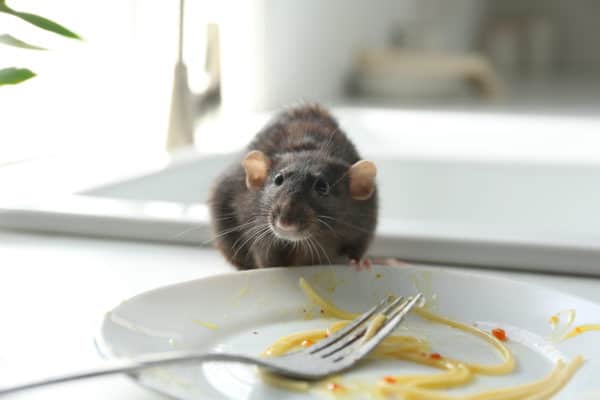
As the corona virus continues to spread, people around the world are drastically changing their daily routines. Tourism has come to a grinding halt. Restaurants are closed and people are staying home. What many don’t realize is this change in our daily lives is also affecting the ecosystem within cities. As there is less urban traffic, there is less food for pests and rodents – like rats. According to experts, if rats lose these established food sources (e.g. trash in cans in the park or dumpsters outside restaurants) then they will start fighting over any food that remains, even going so far as to kill each other in order to survive.
Because rats are having to get creative in finding new food sources, there is now a trending surge of rats invading homes and essential businesses in search of their next meal. Rats will follow the smell of food into homes, being as bold as necessary to find food in their effort to survive. Rats in homes pose serious risks – they will chew through wires and cables putting you at risk for fires and they carry diseases of their own which can easily be transmitted to you and your family. While there is no evidence that rats themselves can become infected with corona virus, there is some risk for spreading it to humans. Rats are known to crawl through sewer pipes containing human feces which has been shown to contain the virus. They then make their way into your home and contaminate any surfaces they touch with the virus-laden feces, potentially allowing humans who come in contact with these contaminated surfaces to contract the virus. The CDC reports that although this scenario is possible, the risk of transmission by feces is actually quite low.
To protect your family and/or essential business, the following rat prevention tips can help to prevent a rat infestation, limit the spread of disease, and keep your environment a safe-haven, during shelter-in-place orders and in the future:
If you notice a rodent problem in your home or essential business, contact a professional pest control company. Rats can cause serious health risks to your family or employees, as well as the risk for fire and other structural damage to your home and property. A licensed wildlife exclusion company will inspect your home to identify your animal problem, determine where they are getting in, remove them, and prevent the animals from getting into your home in the future. They can also inform you of any existing damage or contamination and provide you with a recommendation for repairs or clean-up.
5 Things That Could Be Attracting Termites to Your Home
Summer Wildlife Removal: Common Home Invaders
What is the Difference Between Traditional and Green Pest Control?

In recent times, we are finding ourselves spending more time at home and stocking up on supplies such as food, toiletries, and more. But as you stock up on these essentials, you could be providing stored product pests or “pantry pests” with a supply of their own. Here are a few tips to keep your kitchen free of these unwelcome guests:
If you take these precautions, you can easily avoid pests from raiding your pantry for all your stored groceries!
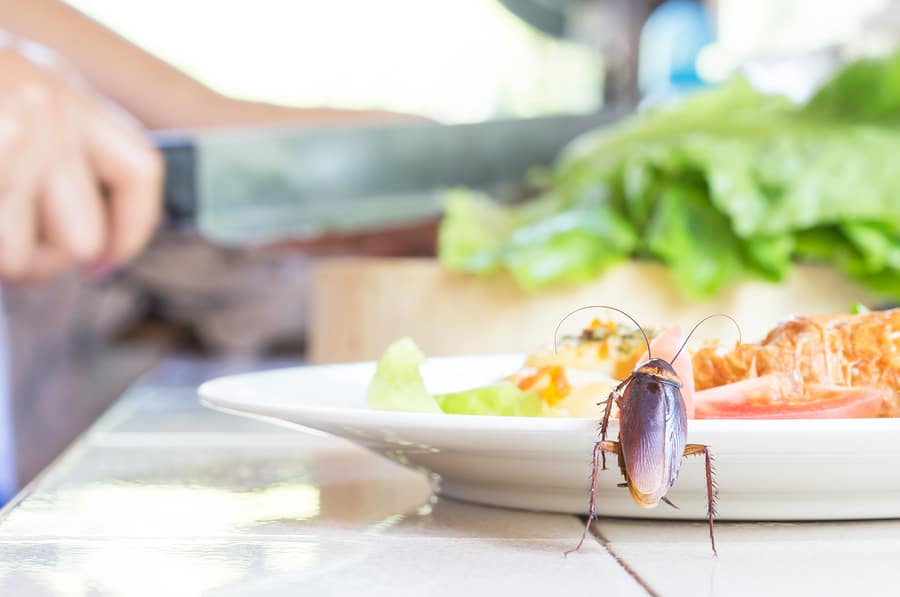
As Springtime approaches, allergies are bound to follow. Many tend to blame the plant pollens for their sneezing and watery eyes. Although pollen can trigger your allergy symptoms, there could be another reason why your allergies are flaring up this Spring: Cockroach allergies.
Signs and Symptoms of a Roach Allergy
Cockroaches might not be the first reason you think of when you start to get allergies, surprisingly though, they can be the cause of your allergies and asthma. According to the American College of Allergy, Asthma & Immunology the saliva, feces, and shedding parts of cockroaches can trigger both asthma and allergies, acting like dust mites. The common symptoms of cockroach allergies can be coughing, sneezing, asthma attacks, nasal congestion, sinus and/or ear infection, itchy red or watery eyes, and skin rashes.
Preventing Roaches from Inside the Home:
In a survey conducted by the Asthma and Allergy Foundation of America (AAFA) and the National Pest Management Association (NPMA), the allergists surveyed believed that a pest-free home is the most important factor in preventing asthma and allergy systems.
Knowing what attracts roaches can help you prevent a roach infestations. Here are some preventative tips to keep roaches out of your home:
Cockroaches can be one of the most difficult pests to eliminate. If you find yourself using the tips above but are still seeing roaches in your house, contact a pest control company. An exterminator will be able to identify where and how the roaches are entering your home and eliminate them to protect you and your family’s health.
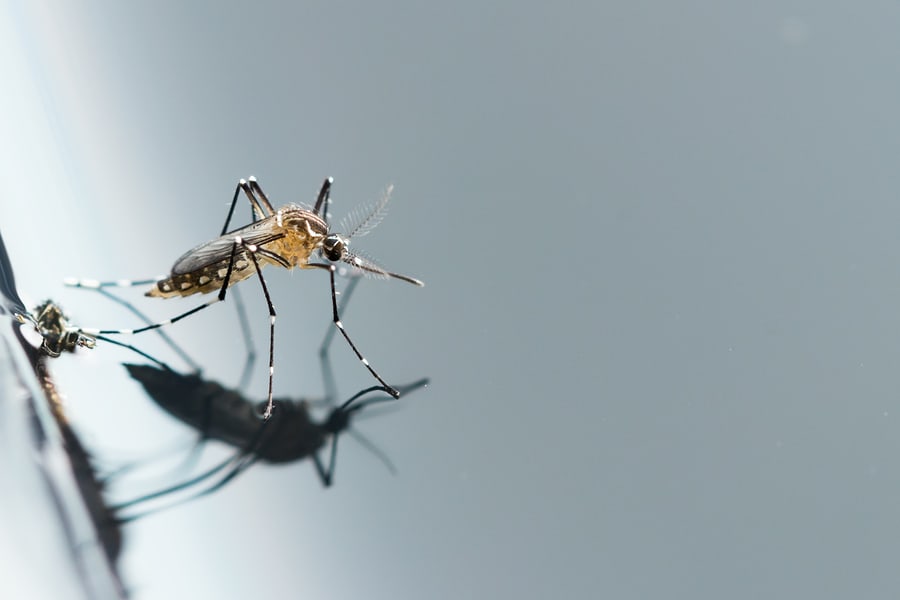
Typically, when you’re swatting away mosquitoes, you’re most likely outside. But what if you notice these pesky bugs inside your home? Mosquitoes can be considered one of the most irritating pests during the warmer seasons. They’re usually found in areas of high humidity and survive by sucking blood from animals and humans. When you’re relaxing at home after a long day of work, the last thing you want to worry about is getting bit by one or several of these pests. Though, if you’re starting to see them inside your home, it’s probably time to start investigating.
Mosquitoes could easily sneak inside your home through broken screens or doors. Mosquitoes are extremely small, and if there’s a slightest gap open to enter your home, they will. Begin to inspect the screens, windows, and doors in your home. Make sure there aren’t any large gaps or tears that would allow any bugs to enter the home.
Mosquitoes are attracted to still and stagnant water. There’s a high chance of mosquito activity if your property is near standing water with a constant water source. Mosquitoes could easily enter your home and lay their eggs; female mosquitoes will lay eggs in water for survival.
House plants are also known to attract mosquitoes inside the house. If your house plant has a water tray, mosquitoes will typically start to lay their eggs there while also feeding off the plant to get energy. Clean out your water trays periodically to prevent mosquitoes from laying more eggs.
One factor that not all homeowners will think about is a possible plumbing problem attracting mosquitoes. Simple leaks with small pools of water will certainly attract these pests. Mosquitoes are not only attracted to just areas of moisture, they can also be found in shaded, covered areas. Make sure to check crawl spaces, basements, and other areas where a pipe could leak.
Finally, if you’ve inspected all these possible factors and are still being infested with mosquitoes or want to put in place a mosquito prevention plan, call a local pest control company where they can investigate the problem and create a mosquito reduction program designed for your home.